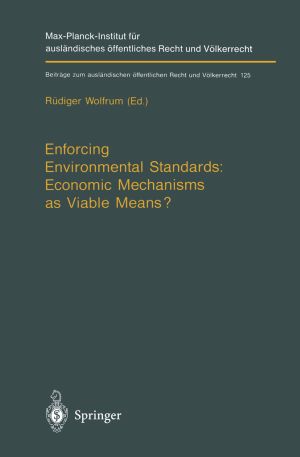
This volume contains the papers submitted to the interdisciplinary symposium Enforcing Environmental Standards: Economic Mechanisms as Viable Means? organized by the Max Planck Institute for Comparative Public Law and International Law. The symposium centered around the necessity to introduce into international law, characterized by a lack of central enforcement mechanisms, new mechanisms to enforce international standards for the protection of the environment. Modern international environmental law has established several economic mechanisms to inforce international standards for the protection of the environment, ranging from trade restrictions through economic incentives to an economically induced interstate cooperation. These mechanisms have been assessed by lawyers and economists with regard to their productivity.